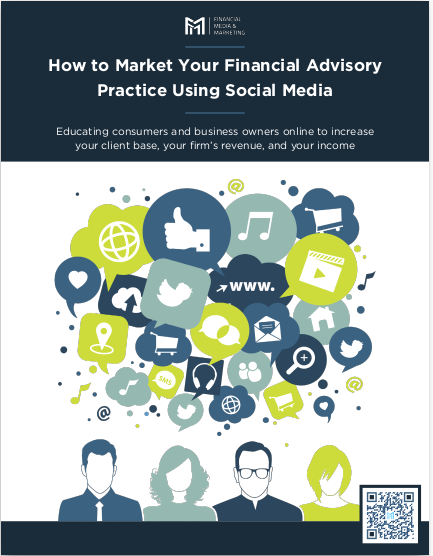Key Takeaways
-
Clients hesitate to trust financial advisors due to unclear communication, lack of transparency, pushy sales tactics, and perceived conflicts of interest.
-
Building trust requires a shift in approach, focusing on client education, long-term relationships, and a more personalized, transparent strategy.
Why Clients Are Wary of Financial Advisors (And How You Can Fix It)
Trust is the foundation of any client-advisor relationship. Without it, even the best financial advice falls on deaf ears. Yet, many financial professionals struggle with gaining and maintaining client trust. In today’s financial landscape, skepticism runs high, and potential clients are more informed (and cautious) than ever before. If you’re seeing hesitation, pushback, or radio silence from leads, you’re not alone.
Here’s why clients don’t trust financial advisors—and what you can do to turn the tide in your favor.
1. Lack of Transparency Breeds Suspicion
Clients Want to Know What They’re Paying For
Hidden fees, vague explanations, and overly complicated financial jargon are major red flags for potential clients. No one likes feeling like they’re being taken advantage of, especially when it comes to their finances. If a client doesn’t fully understand what they’re paying for, their default reaction is skepticism.
What You Can Do
-
Be upfront about fees. Lay out your pricing structure in plain language and make sure clients understand exactly what they’re paying for.
-
Explain your value. Clients need to see the benefits of working with you. Highlight your experience, track record, and how you tailor strategies to their unique needs.
-
Provide clear, written explanations. A well-structured fee breakdown, along with a list of services offered, eliminates confusion and reassures clients.
-
Offer free initial consultations. Giving prospects an opportunity to ask questions without financial commitment builds trust and demonstrates transparency.
-
Use easy-to-understand contracts. Complex agreements filled with fine print can raise suspicions. Instead, use clear and simple language.
2. Overly Sales-Driven Approaches Push Clients Away
People Hate Feeling Pressured
No one enjoys the hard sell. If clients feel like they’re just another sale or that your priority is commission over their financial well-being, trust evaporates. Financial advisors who focus too much on making a sale often drive away potential long-term clients.
What You Can Do
-
Prioritize education over sales. Instead of pushing products, provide insights and actionable advice that demonstrate your expertise.
-
Let clients come to their own decisions. Provide the necessary information and allow them to move at their own pace.
-
Check in, don’t chase. If a lead isn’t ready, follow up periodically with valuable insights rather than aggressive sales pitches.
-
Use content marketing. Create blog posts, newsletters, and videos that educate rather than sell. This positions you as an expert while keeping prospects engaged.
-
Host educational webinars. Providing free, valuable information without a sales pitch encourages trust and long-term relationships.
3. A One-Size-Fits-All Approach Undermines Credibility
Clients Want a Personalized Experience
Generic financial advice doesn’t cut it anymore. Clients expect their unique needs, goals, and financial situations to be acknowledged. If they feel like they’re receiving cookie-cutter recommendations, they’re less likely to trust you.
What You Can Do
-
Take time to understand their concerns. Ask thoughtful questions and actively listen to their financial goals and fears.
-
Offer customized solutions. Explain how your recommendations align with their specific circumstances rather than relying on broad, generalized advice.
-
Keep communication open. Encourage ongoing discussions to adjust strategies as their needs evolve.
-
Use client profiling. Gathering detailed insights about their financial goals, risk tolerance, and preferences helps create tailored solutions.
-
Follow up with personalized recommendations. Instead of generic check-ins, share specific insights relevant to their evolving financial situation.
4. Negative Perceptions of the Industry Create Barriers
Clients Have Heard the Horror Stories
The financial industry has its share of bad actors, and unfortunately, their actions create skepticism even toward honest advisors. High-profile scandals, misleading investment schemes, and mismanaged funds have left lasting damage on public perception.
What You Can Do
-
Establish credibility through transparency. Openly share your qualifications, credentials, and experience.
-
Showcase client success stories. While avoiding personal details, highlight general success stories that demonstrate your value.
-
Align yourself with reputable organizations. Being part of recognized financial institutions or industry groups adds legitimacy to your practice.
-
Leverage social proof. Display testimonials and professional endorsements to reinforce your credibility.
-
Create an FAQ page. Address common concerns directly on your website to preempt client doubts.
How to Rebuild and Strengthen Client Trust
Be Consistently Reliable
Trust isn’t built overnight. Show up consistently, keep your promises, and follow through on commitments. This builds credibility over time and reassures clients that they’re in good hands.
Use Simple, Honest Communication
Drop the jargon and explain things in a way that anyone can understand. Clients appreciate honesty and clarity over complicated financial lingo.
Provide Value Before Asking for a Commitment
Offering free educational resources, consultations, or insights without an immediate sales pitch helps establish trust. This shows potential clients that you’re genuinely interested in helping, not just selling.
Stay Accessible and Approachable
Clients want to feel like they can reach out without hesitation. Make communication easy and be responsive to questions or concerns.
Offer a Transparent Client Onboarding Process
Walk clients through every step, ensuring they know what to expect at each stage. This proactive approach removes uncertainties and builds confidence.
How Trust Impacts Client Retention
A Trusted Advisor Becomes a Lifelong Partner
Once a client fully trusts you, they’re far more likely to stay with you for the long haul. That means higher retention rates, more referrals, and a stronger reputation in your industry.
Referrals Come from Trusted Relationships
Satisfied clients become your best source of new business. They’ll recommend you to friends and family—but only if they trust you completely.
Increased Client Loyalty Leads to Stability
Strong relationships mean fewer drop-offs and a consistent client base, which translates to long-term business stability and growth.
The Bottom Line: Trust is Your Most Valuable Asset
Financial advising is about more than just numbers—it’s about relationships. Clients aren’t just looking for expertise; they’re looking for someone they can trust with their future. By prioritizing transparency, personalizing your approach, and focusing on long-term relationships, you’ll build trust that leads to lasting success.










